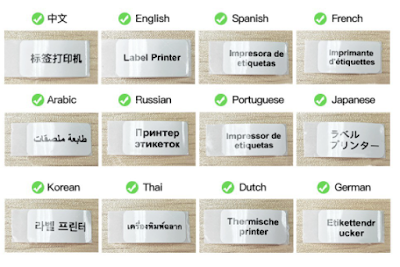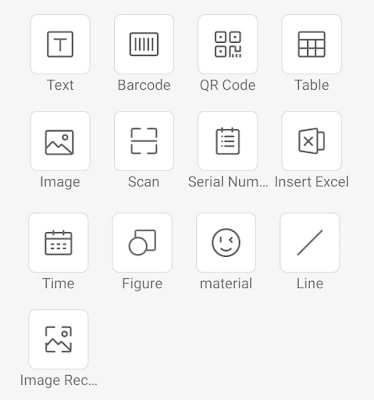Photo by Kelly Sikkema on Unsplash
Your home budget,
also known as your household budget, is the money you set aside that will go
toward essential living expenses. It’s critical to budget your finances to only
spend what you can afford and reach your savings goals.
You can guess what kind
of things go into a home budget: rent or mortgage, groceries, savings, debt
repayment, utilities, etc. However, people sometimes forget to factor the
following expenses into their budgets, which catches them by surprise and
forces them to reallocate their spending. Keep these costs in mind when
figuring out how to budget your monthly paycheck and savings:
Transportation
& Parking
You know you’ll need
to pay for your vehicle each month if you own or lease one, but what about gas?
Parking? If you don’t own a car, then how much does public transportation cost
in your area?
According to Student Loan Hero, the United States' median household income was
$61,937 in 2018. Households that earned this amount spend an average of $763
per month on transportation, including gasoline and car payments. Public
transportation is cheaper, but again, it depends on where you live — you still
might spend as much as $160 per month if you exclusively use Bay Area Rapid Transit in San
Francisco.
Insurance
Premiums
Insurance premiums
are a significant hit on your wallet, but they’re necessary to have. Health and
car insurance go without saying, but you may owe mortgage insurance if you put
less than 20% down when purchasing your home. There’s also life insurance,
personal insurance, contributions to social security, and more.
It’s difficult to
calculate how much the average person in the U.S. spends on insurance because people’s situations
vary tremendously. You might be lucky and only spend a few hundred dollars a
month if you live in an inexpensive state and only need the basics. If you need
more, then you could spend well over a thousand. Other factors affect your
insurance premiums, too, such as your age, marital status, job, and education
level, so combine all kinds of insurance you need to pay for when calculating
your monthly household budget.
Out-of-Pocket
Costs and Emergencies
Insurance doesn’t
cover everything, though. Medical care is notoriously expensive in the U.S., so
you should be prepared to pay out-of-pocket costs that exceed the scope of your
health plan.
Disasters strike in
other ways, too. Hopefully, it’s small — maybe you spilled coffee on your only
nice shirt and need to buy a new one for work — but it might be an outright
emergency, such as someone robs you or a natural disaster impacts your home.
It’s crucial to have emergency money set aside to cover an irregular or
unforeseen circumstance.
Pet Care
You budgeted to feed
yourself, but what about your pet? These costs might be low if all you need to
buy is food every month and a few toys that last you a year, but vet bills can
be expensive if your animal friend has health issues. If you prefer to
outsource much of your pet care, you should budget much more to account for
sitters, boarding, and walks. Of course, pet care expenses depend on the kind
of animal you have, so anticipate how much financial TLC your pet will need.
Subscriptions
and Memberships
Subscriptions and
membership fees on auto-renewal can sneak up on you. Don’t fall into the trap
of thinking you’ve planned your budget for the month perfectly, only to be hit
with a $15 Netflix bill you forgot to account for. These costs shouldn’t be
out-of-sight, out-of-mind, so keep track of streaming services, subscription
boxes, or shopping memberships you pay for.
Fees, Fees,
and More Fees
Fees are everywhere.
They’re like pests you can’t seem to get rid of, but you forget about them when
they’re not in the room. Make a list of all the fees you might need to pay
throughout the month, including:
● Bank account maintenance fees;
● ATM fees;
● Overdraft fees;
● HOA dues;
● Credit card fees;
● Late fees;
● Monthly service fees.
And more. There are
ways to avoid or reduce many of these, but don’t buy something you
don’t need if a fee will hit you later and you’re living paycheck to paycheck.
Home &
Vehicle Maintenance
It’s rare for
everything to work as it should, especially if you can’t afford high-quality
goods that last longer. Expect to pay for vehicle upkeep, appliances that stop
functioning, and fixing potential damage. These costs are related to your
emergency funds, but paying for regular maintenance will (hopefully) prevent
actual emergencies from happening in the first place.
Different
Kinds of Savings
Save as much as you
can. Don’t forgo leisure entirely — it’s important to your mental health to
have fun, and you deserve to — but besides general savings accounts, remember
to save to buy a house, pay for college (or someone else’s education),
emergencies, retirement, and more. Your monthly contribution to each may vary,
but having substantial savings will set you up for major purchases later in
life.
Budgeting is an
essential skill. You can use a budget finance app if you need assistance, but
remember to factor in every possible expense to avoid tight situations.
This article originally appeared on Earnin.
Please note, the
material collected in this blog is for informational purposes only and is not
intended to be relied upon as or construed as advice regarding any specific
circumstances. Nor is it an endorsement of any organization or Services.























